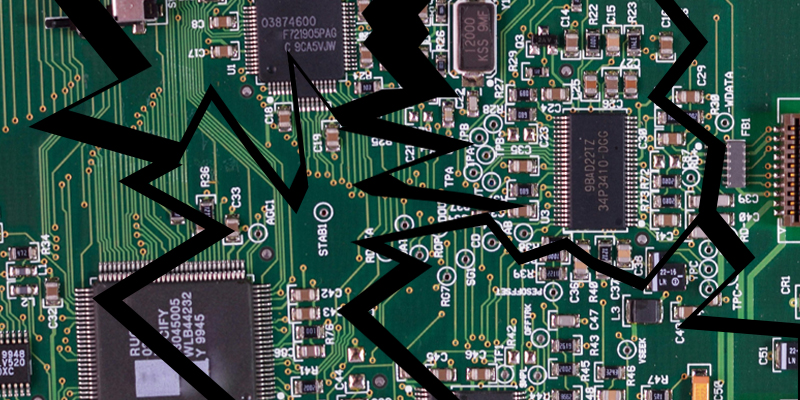A few good books about too-good-to-be-true tech (to read after your Tesla explodes).
You can’t swing a Luddite’s hammer these days without hitting a piece of tech that’s overhyped and underdelivered. AI is the ultimate “solution TK,” promising to fix everything at some point down the road, while actually making the internet more dangerous and the planet more unlivable. The metaverse failed to take off, despite Zuckerberg giving us legs, and nothing much came of Apple’s digital ski goggles that make you look like you’ve been banned from multiple subreddits. And the patron saint of making your mid-life crisis everyone else’s problem, Elon Musk, has launched a teetering flotilla of overpromised tech solutions that only seem to rust, explode, or attract scores of unrepentant racists.
If you need a break from real-life technology not living up to its lofty promises, here are a few books that also feature technology that’s not ready for primetime.
Michael Crichton, Jurassic Park
Like so much tech these days, Crichton’s next big vacation destination turns out to be an utter disaster. When I first read this as a kid, it was boggling to me that no one imagined how it might be difficult to contain creatures that are famous for being huge. But having lived through a number of highly lauded tech innovations that have blazed ahead only to bump up against obvious pitfalls, Jurassic Park makes more sense now.
Hard to look back on Crichton’s stuff as predictive, though, knowing that he spent much of his later public life claiming that climate change wasn’t humans’ fault.
Mary Shelley, Frankenstein
One of the earliest and greatest stories about tech tinkering gone wrong, Mary Shelley’s book about a grad student who works through his grief by defying God, only to get sick and forget about the giant man that he created, is a classic of the “whoopsie, now I am become Death, the Destroyer of Worlds” genre. Although to be fair, haven’t we all forgotten about some leftovers in the fridge, only to later find a whole Whoville of mold growing in there? Maybe we should go easier on self-driving car guys who are unleashing multi-ton unmanned and under-scrutinized cars onto our roads.
W.W. Jacobs, “The Monkey’s Paw” from The Lady of the Barge
A young man brings home an object and warns his parents that it will grant them wishes but at a horrible cost, only to have his dad ignore his warning and ruin all their lives in the process. Very relatable to anyone who has rued the decision to set their parents up with a Facebook account.
J.R.R. Tolkien, The Lord of the Rings
A ring that can turn you invisible? The perfect technology! Imagine the benefits for the shareholders! No need to dig any deeper into who made it, or why!
Hayao Miyazaki, Nausicaä of the Valley of the Wind
I love these books and their giant, sensitive bugs. Come for the sweeping story, gorgeous visuals, and Miyazaki’s aircraft obsession, stay for the Sea of Corruption as a harrowing parable of manmade solutions with world-engulfing consequences.
William Gibson, “Johnny Mnemonic” from Burning Chrome
Gibson has a great imagination for bizarro tech and the klutzy jargon to describe it, and this short story is a quick hit of his signature style. Johnny Mnemonic and the delightfully bonkers movie version follow a man who transports computer data in his mind, tech that soon imperils his life. I love that the valuable data in Johnny’s head is “hundreds of megabytes,” which hasn’t aged well as an impressive number. Be sure to recommend this story as a cautionary tale to anyone who is considering letting Elon drill a Neurolink into their brain.
This story also features a sentient, heroin-addicted, former Navy dolphin named Jones, which is something I sincerely hope no Silicon Valley dude is trying to replicate.
Samuel R. Delany, Babel-17
The mysterious and powerful language at the center of this story about interstellar war and linguistics is soon revealed to be something much more than it seems. Language as a technology and a weapon might come across as hacky in the hands of a lesser writer, but Delany’s steady and thoughtful hand makes for essential reading.





